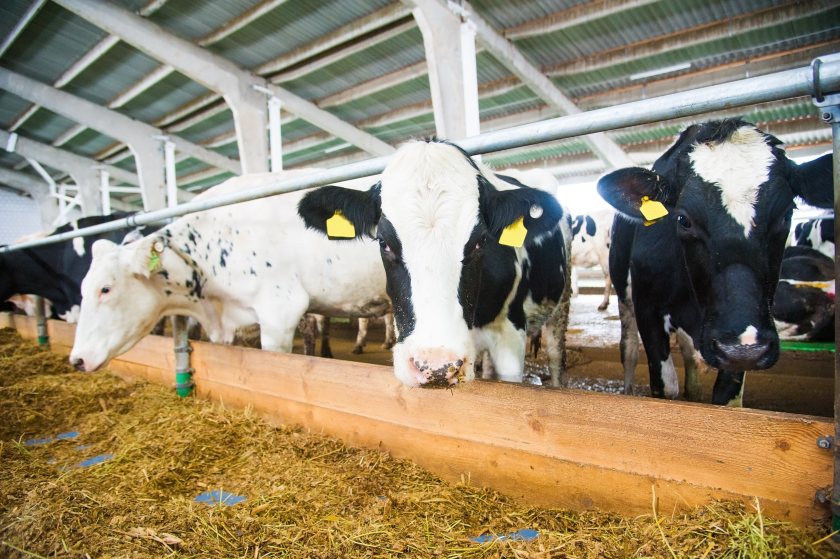
A major UK trial testing a feed additive designed to cut methane emissions from dairy cows has ended, with Arla Foods reviewing the results before deciding whether to continue its use.
The Bovaer supplement, developed by DSM-Firmenich, was trialled on 30 Arla farms across Britain. It works by reducing methane-producing enzymes in a cow’s stomach and is claimed to lower emissions by up to 45%.
The product has been promoted as a major step towards climate-friendly farming — though its rollout has sparked heated debate.
The trial’s launch last year stirred debate about food safety and sparked online protests, including videos of people discarding milk in opposition.
DSM-Firmenich maintains that Bovaer is “proven, effective and safe”, and has been used by thousands of farmers in more than 25 countries.
A company spokesperson said the firm was aware that “some farmers have raised concerns about cow health” and that these were being fully investigated. “In previously reported cases, Bovaer was not identified as a contributing factor,” they added.
The Food Standards Agency approved Bovaer for UK use in 2023, concluding that milk from treated cows is safe to drink at approved doses. Methane has a much stronger short-term warming effect than carbon dioxide, making livestock emissions a key climate target.
In October 2023, Defra reaffirmed its commitment to reducing methane emissions from livestock, pledging to promote the use of methane-suppressing feed products in England.
However, the NFU said last year that such products must “work in real-life situations” and be supported alongside other emission-reducing techniques like genetics and efficiency improvements.
NFU Dairy Board chair Paul Tompkins said “questions remain about long-term efficacy” and whether the additive can be used “practically and effectively on farm” without affecting animal health or welfare.
He noted that Defra research had shown shoppers were generally positive about methane-suppressing feed “if human and animal health are not affected,” but warned that “a strong evidence base” was needed to give farmers confidence.
“This trial project between Arla, Morrisons, Aldi and Tesco could help provide this evidence,” Tompkins said, adding that “it’s important the supply chain and government continue to work together to enable informed decision-making on greenhouse gas reduction.”
Arla said that its trial findings were “currently being reviewed” before any decision on future adoption.
